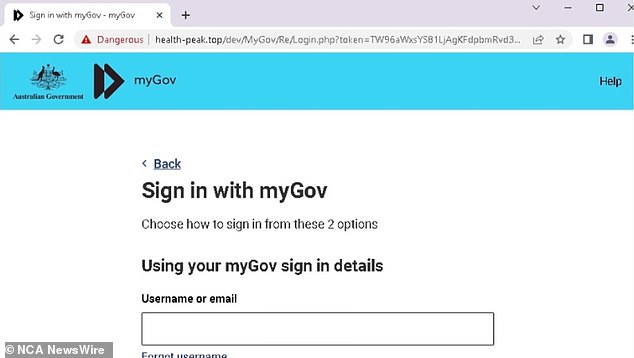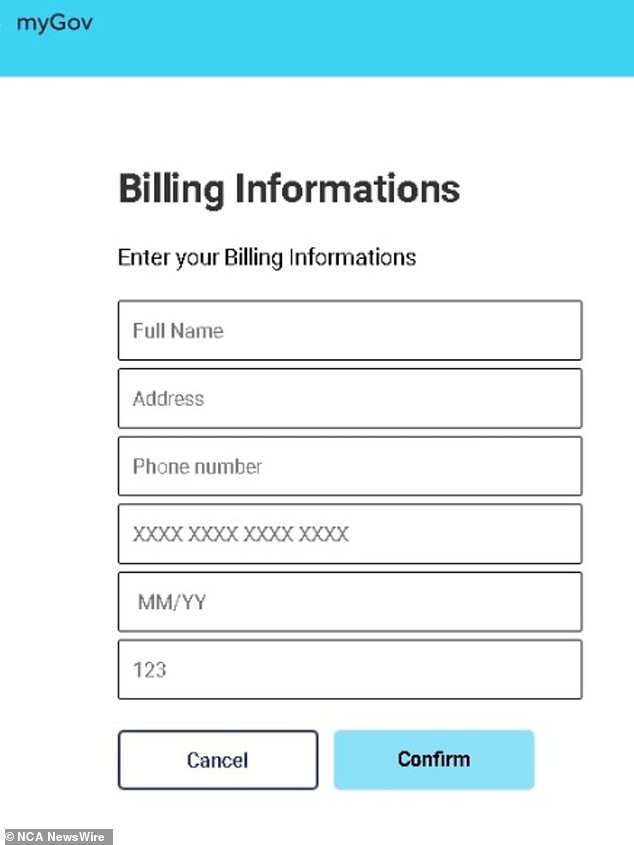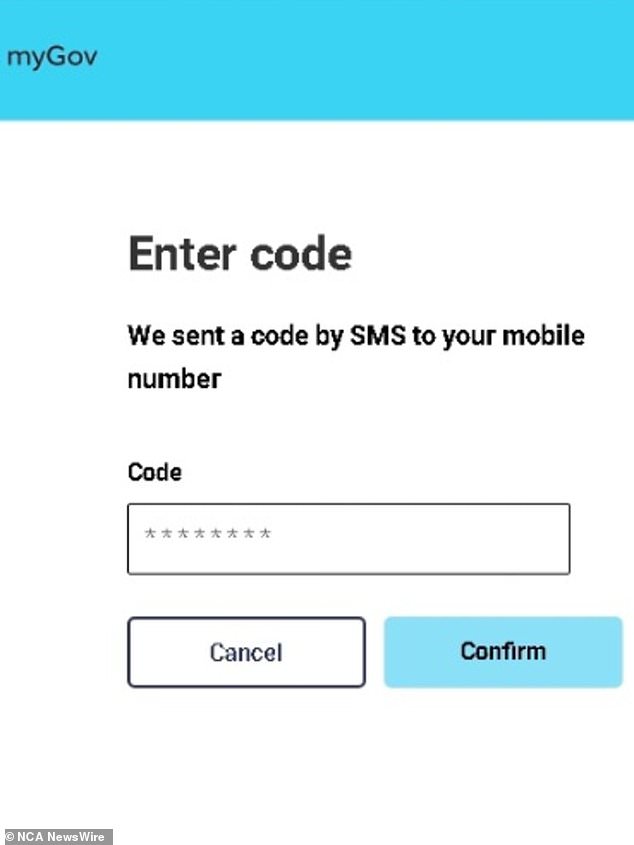The MyGov scam that every Aussie needs to know about
>
The myGov scam every Aussie needs to know about: Here’s how you can make sure you don’t get caught
- MyGov email scam targets thousands of Australians
- Email pretends to be from the government offering refunds
- But instead, criminal scammers steal your bank details
A dangerous new email scam that appears to be from the federal government has raised a warning for Australians.
Fake myGov emails claim to offer “pending refunds” in the subject line, enticing readers to open the message.
Although the sender name says myGov, the first hint that the site is a scam is through its website address, which does not match the official one.
The email comes from a fake website, but asks readers to enter personal details to get a refund. Image: MailGuard
The body of the email addresses ‘customers’ and goes on to explain that the reader has a pending refund of $640.98, or a similar amount, available on myGov.
There is a link to accept payment online, which takes the reader to a fake login page where they are asked to enter their username and password.
They are then asked to provide their full name, address, phone number, credit card information, and CVV number.
“These details will again be stolen by the criminal and will likely be used for their personal financial gain or sold on the dark web,” said a statement from MailGuard, an email security software company.

The scam masquerades as an official myGov email and asks users to log into their account.
The recipients are then asked to enter a code supposedly sent via their mobile phone, which is typically used to verify credit card payments.
Anyone who receives the suspicious email is urged not to provide any personal information, or they will face the loss of their personal data at the hands of cybercriminals on the dark web.
myGov said it would never send a hyperlink requesting data via email or SMS.
‘myGov is delivered by Services Australia,’ the government agency said.
‘Always access myGov by typing the web address yourself.

The scammers then ask you to enter your credit card details to receive the refund, but instead they will simply steal your bank details.

The scammers even have a page that says it will send a confirmation code to your phone, mimicking the official processes.
“Services Australia and myGov will never send you an email or text asking for your username, password, myGov PIN, secret Q&A, personal details.”
The agency said any messages in your myGov inbox once you’ve logged into your account are safe and secure.
‘It is safe to open links included in myGov Inbox messages.’
MailGuard said that anyone who receives the suspicious email should delete it immediately without clicking the links.
An email should be treated as suspicious if:
– does not address you by name or omit personal details that a real company would normally include
– appears to be from a legitimate company but has poor use of English
– are from companies you wouldn’t expect to know anything about
– will take you to a new page or website that is not a legitimate company URL
Anyone concerned about potential fraudulent emails can speak to MailGuard on 1300 30 44 30.

If provided, the information will go to cyber criminals for illegal use, and you could see your account deleted
